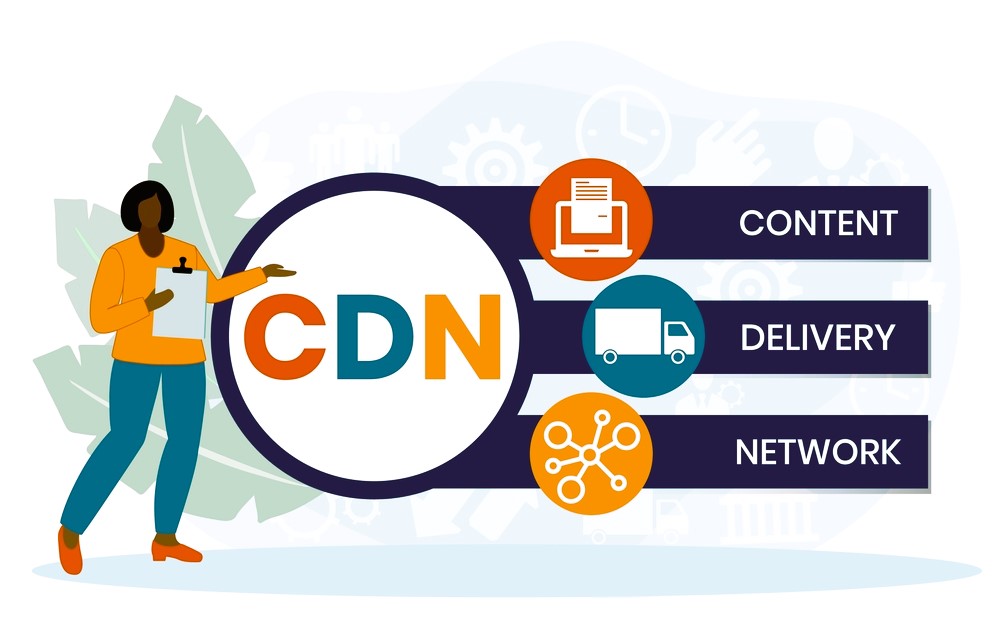The Role of Content Delivery Networks (CDNs) in Website Performance
In today’s fast-paced digital world, website performance is a critical factor in providing a positive user experience and achieving business success online. As websites continue to evolve with rich multimedia content, dynamic applications, and global audiences, ensuring fast and reliable delivery of content to users becomes increasingly challenging. This is where Content Delivery Networks (CDNs) play a crucial role. In this article, we’ll explore the significance of CDNs in website performance and how they improve the speed, reliability, and scalability of websites.
What is a Content Delivery Network (CDN)?
A Content Delivery Network (CDN) is a network of geographically distributed servers strategically positioned to deliver web content to users more efficiently. Instead of relying on a single server to serve content to all users, CDNs cache static content, such as images, videos, CSS files, and JavaScript, on servers located closer to the user’s geographical location. This reduces latency and improves page load times by delivering content from the nearest server rather than the origin server.
How CDNs Improve Website Performance:

- Reduced Latency: By caching content on servers located closer to users, CDNs minimize the distance data must travel, reducing latency and improving page load times. This is especially beneficial for global websites with users accessing content from different parts of the world.
- Improved Reliability: CDNs distribute content across multiple servers, reducing the risk of single points of failure and improving the reliability of content delivery. In the event of server downtime or network congestion, CDNs automatically route traffic to alternative servers, ensuring uninterrupted access to content.
- Scalability: CDNs are designed to handle high volumes of traffic and scale dynamically to accommodate spikes in demand. By distributing traffic across multiple servers, CDNs can effectively manage traffic surges without impacting website performance or availability.
- Optimized Content Delivery: CDNs use advanced caching techniques, such as edge caching and dynamic caching, to optimize content delivery based on user behavior and preferences. This ensures that users receive the most relevant and up-to-date content quickly and efficiently.
- Enhanced Security: Many CDNs offer built-in security features, such as DDoS protection, web application firewalls, and SSL encryption, to safeguard websites from cyber threats and attacks. By filtering malicious traffic and preventing unauthorized access, CDNs enhance the security posture of websites. Development of cloud hosting, read about the advantages and considerations in our article.
Use Cases of CDNs:
- E-commerce Websites: CDNs help e-commerce websites deliver product images, videos, and other multimedia content quickly and reliably to users, improving the shopping experience and increasing conversion rates.
- Media and Entertainment Websites: CDNs enable media and entertainment websites to stream high-quality video and audio content to users without buffering or interruptions, enhancing the viewing experience for audiences worldwide.
- Corporate Websites: Corporate websites use CDNs to deliver company information, marketing collateral, and other static content efficiently to users, ensuring consistent branding and messaging across different regions.
- Gaming Platforms: CDNs support online gaming platforms by reducing latency and improving game performance for players, leading to smoother gameplay and better user engagement.

Conclusion:
Content Delivery Networks (CDNs) play a vital role in improving the speed, reliability, and scalability of websites by optimizing content delivery to users worldwide. By leveraging a distributed network of servers strategically positioned across the globe, CDNs reduce latency, improve reliability, and enhance security, resulting in a superior user experience and increased business success online.
For more information on web performance standards and best practices, you can visit reputable sites such as:
These resources offer valuable insights and information to help you understand the role of CDNs in website performance and implement best practices for optimizing content delivery on your website.
